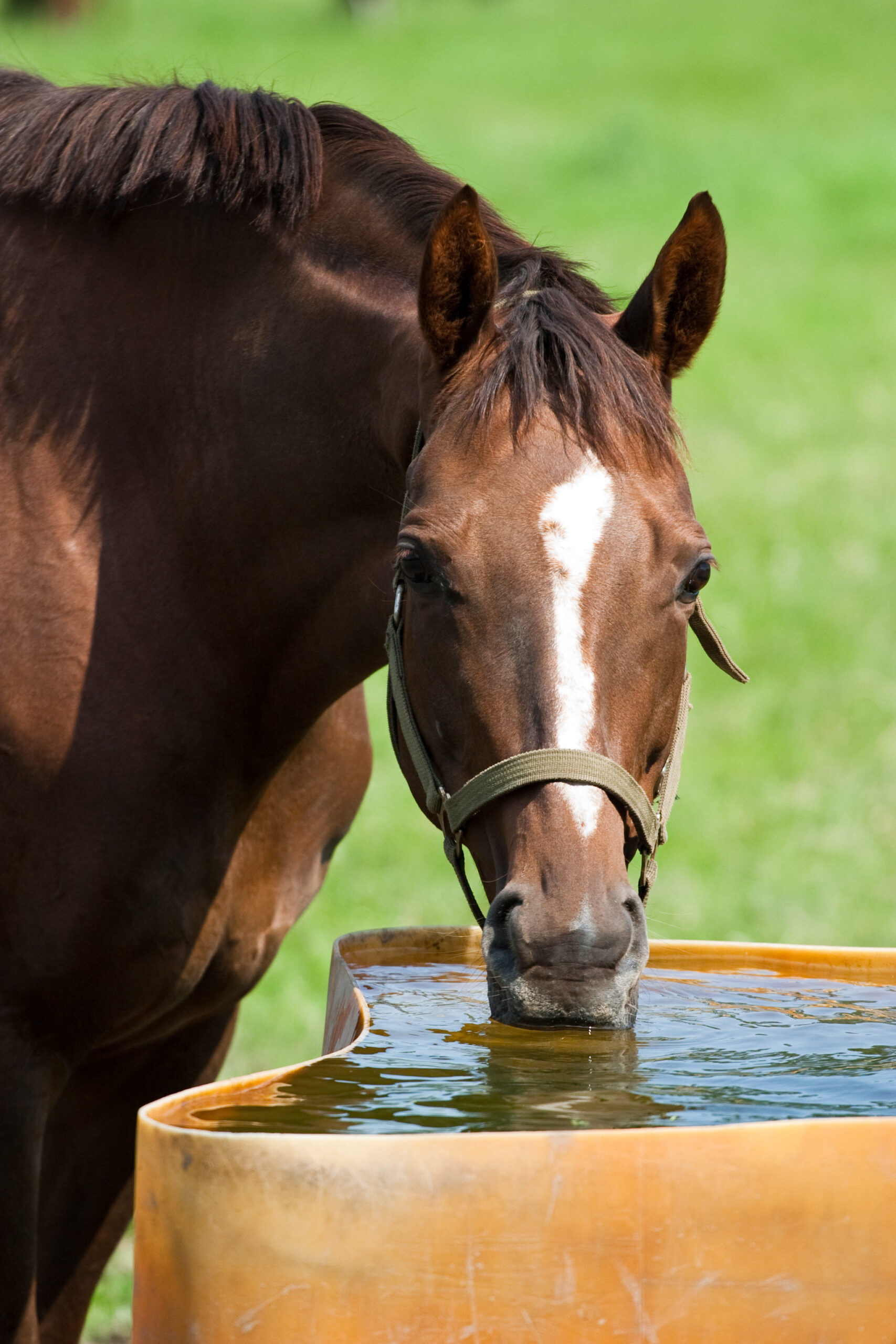Home > Horse Care > Can a horse drink too much water?
Can a horse drink too much water?
- July 20, 2025
- ⎯ EQUUS
Question:
I know that it’s important to keep a horse from becoming dehydrated. But should I worry if my horse seems to be drinking too much? He is a 20- something Quarter Horse and I retired him last year. He has always been in good health, but recently it seems like he is drinking a lot more. I have automatic waterers in my pastures, so I don’t know exactly how much water he taking in, but it seems like every time I see him, he’s hanging out over the trough or actively drinking. He also seems to be urinating more, but he is on full turnout, so that’s hard to know for sure, too. He otherwise appears to be healthy, his coat is shiny, he is maintaining his normal weight. Should I investigate more or am I looking for something to worry about?

Answer:
This kind of detailed observation is great! Attentive owners like you can so often catch little changes in their horses that can have health implications. This will potentially help you and your veterinarian to greatly improve the health and increase the lifespan of the horse.
Changes in drinking and urination, especially in middle- to older-aged horses, are indeed something to talk about with your veterinarian. This is most commonly a signal that your horse has developed PPID (pituitary pars intermedia dysfunction, commonly known as equine Cushing’s disease). An endocrine disease, PPID can disrupt healing, increase the risk of laminitis, cause hair coat abnormalities and more. You veterinarian can do blood tests to confirm or disprove this diagnosis.
While there is no cure for PPID, we do have effective treatments. Horses with properly managed PPID can live great lives and often continue athletic careers. Depending on what a physical examination turns up, and based on your horse’s history, your veterinarian may also check for kidney disease or other less common problems. Outcomes for these issues will vary, but almost universally will be better with early detection. So, when you see something changing like this, let your veterinarian know.
Best of luck to you and your horse. I hope you get the answers you need to keep him happy and healthy.
Melinda Freckleton, DVM
Firestar Veterinary Services
Catlett, Virginia
Our expert:
Melinda Freckleton, DVM, is founder and operator of Firestar Veterinary Services, LLC, in Catlett, Virginia. A graduate of Cornell University, she served on the 2012 equine committee for the Virginia Veterinary Medical Association Conference as well as the AAEP Task Force on Referral Guidelines and Ethics. Freckleton enjoys competing in dressage and caring for her dogs, cats and horses on her small farm.





